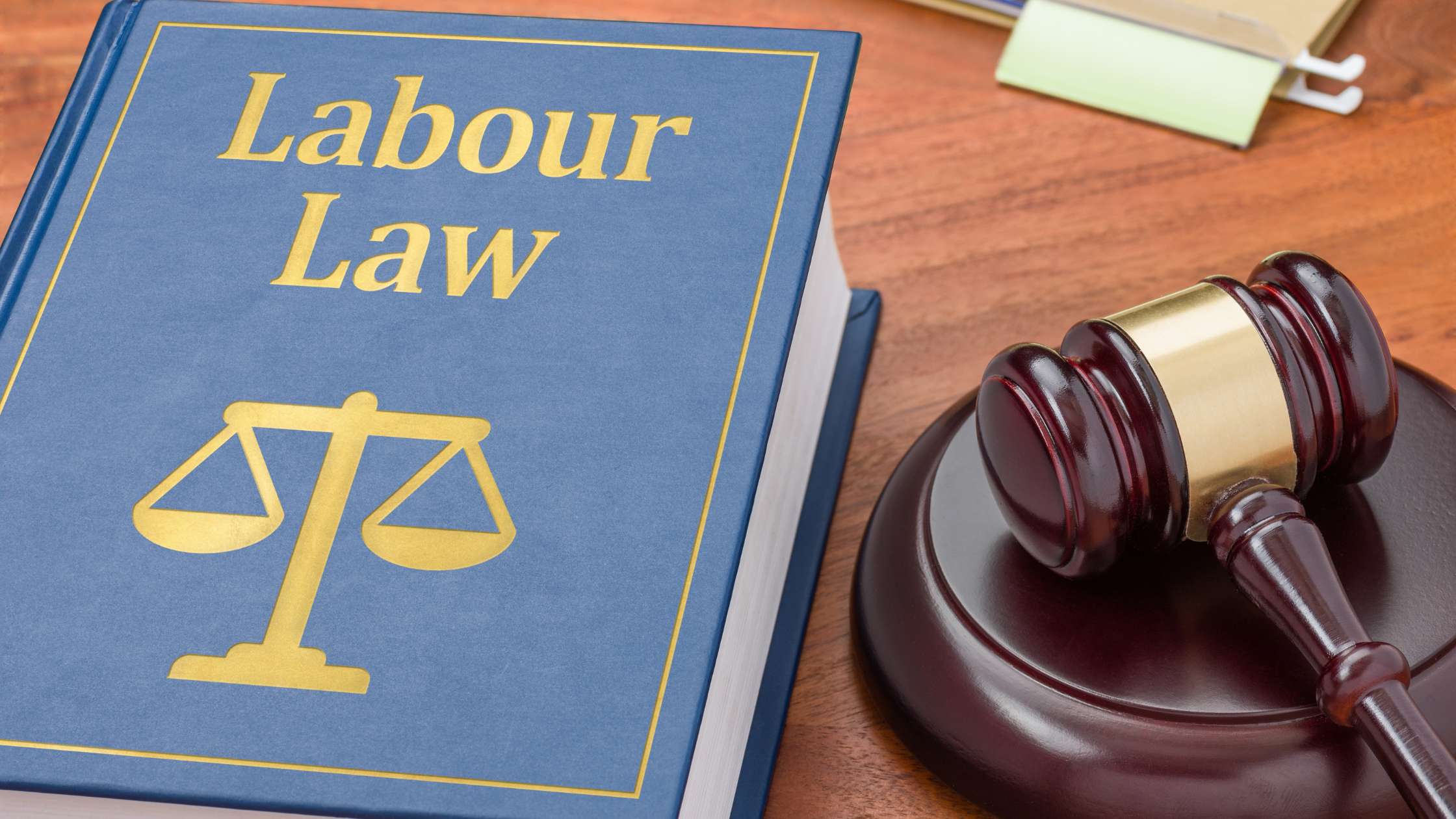
In general, a party who files a labor claim is obligated to submit evidence: the plaintiff to prove its claim(s) and the defendant to prove its counter claim(s). When litigating in this area, parties should be aware of that there are a number of evidentiary rules which are particular to labor disputes. The following is a discussion of various notable decisions in labor litigation concerning the collection and submission of evidence, which have an effect on the admissibility of evidence in a court of law.
Documentation that is not the original or certified true copies
In a labor dispute involving employment termination decided by the People’s Court of Ho Chi Minh City, the employee (plaintiff) submitted to the Court a photocopy of the internal working regulations of the company without it being either certified as a true copy or examined by the judicial officers in comparison with the originals. The first-instance court accepted the plaintiff’s claims based on this photocopy, but the People’s Court of Ho Chi Minh City subsequently rejected the employee’s claim at the appellate stage and, additionally based on other procedural violations of the first-instance court, abrogated the first-instance judgment.
In detail, Judgment No.522/2019/LD-PT dated June 05, 2019, the People’s Court of Ho Chi Minh City stated that:
“The evidence was not collected in compliance with Article 95 of the Code of Civil Procedure: Documents such as […] and the Internal Working Regulations are photocopies without being either certified as true copies or examined by judicial officers basing on comparison with the originals. So these documents are not recognized as valid evidence. It is a violation of the law where the first-instance court accepted the photocopy of the internal working regulations as the valid evidence and, based upon this, accepted the plaintiff’s claims.”
Audio/video which is self-recorded without any written documentation of their source
In a labor dispute decided by the People’s Court of Tuyen Quang Province, the employee (plaintiff) presented 01 USB which contained an audio of a conversation between the employee and the company regarding the disputed matter. The employee, however, did not present any documentation proving the source of this audio. The People’s Court of Tuyen Quang Province did not recognize this audio as a valid evidence.
In Judgment No.02/2019/LD-PT dated July 22, 2019, the People’s Court of Tuyen Quang Province ruled that:
“The evidence was not collected in compliance with Article 95 of the Code of Civil Procedure: Documents such as […] and the Internal Working Regulations are photocopies without being either certified as true copies or examined by judicial officers basing on comparison with the originals. So these documents are not recognized as valid evidence. It is a violation of the law where the first-instance court accepted the photocopy of the internal working regulations as the valid evidence and, based upon this, accepted the plaintiff’s claims.”
Emails are recognized as valid evidence
In a labor dispute decided by the People’s Court of Binh Duong Province, the employee (plaintiff) submitted to the Court ‘emails’ between the employee and the general director of the company. The emails contained communications relating to the dismissal of the employee and prohibited the employee from entering the office afterwards. By examining the content of the emails, in comparison with the testimonies of the involved parties during the dispute resolution and the Minutes of labor dispute conciliation of Division of Labor – Invalids and Social Affairs, the People’s Court of Binh Duong Province recognized these emails as valid evidence. As a result, the Court partially accepted the employee’s compensation claim for the company’s unilateral employment termination violations.
In Judgment No.29/2018/LD-PT dated November 20, 2018, the People’s Court of Binh Duong Province ruled that:
“[…] Besides the testimonies given by the involved parties as stated at section, the evidence provided by the involved parties are the ‘emails’ between Ms. T and Mr. C (records No.72-85, 236-246, 253-261); the invitation from the Company sent to Ms. T and the Minutes of the labor dispute conciliation dated August 07, 2017 of the Division of Labor – Invalids and Social Affairs of TU Commune.
[5] Article 10 of the 2005 Law on E-transactions regulates the format of a data message as follows: “A data message may be submitted in the form of an electronic data interchange, electronic documents, e-mails, telegrams, telegraphs, facsimiles and other similar forms”; The legal validity of the data message is regulated by Article 11 of the 2005 Law on E-transactions as follows: “Information contained in data messages cannot have its legal validity disclaimed for the sole reason that it is expressed in the form of a data message”. By examining the emails between Ms. T and Mr. C, the Court concluded that:
[…] There are grounds to conclude that: On May 17, 2017, Mr. C, being the legal representative of the Company, met Ms. T to announce that Mr. C no longer wanted to retain Ms. T in the Chief Accountant position, but Ms. T disagreed with this wish. Thus, Mr. C wanted to terminate her labor contract. On the afternoon of the same day, Mr. C requested that Ms. T hand over everything, including dossiers, office key and the money managed by her. In response, at 20:57 on May 17, 2017, Ms. T emailed Mr. C that: “1) I need your dismissal decision… 4) Please send official notices to the Department of Planning and Investment, Vietcombank and all the suppliers to inform them that I am no longer the employee (or Chief Accountant) of CDM from May 18, 2017. May I come into the office to take my personal stuff tomorrow?”. At 21:10 on May 17, 2017, Mr. C replied to her email that: “You are not allowed to enter the office tomorrow or any other day’ in order to prohibit her from coming into the office. Then, both parties had further emails back and forth, in which Mr. C requested Ms. T to submit her resignation letter for the Chief Accountant position if she wanted to receive 02 months’ salary, otherwise she would be assigned to an Accountant position. Ms. T disagreed to submit a resignation letter and did not come to work. The Court ruled that there was a violation of Article 1 – Term and Job of the signed labor contract (record No.15) when Mr. C requested Ms. T to resign from her Chief Accountant position in order to continue to work for the Company as an Accountant. The legal representative of the Company admitted to the content of the emails sent by its General Director (Mr. C) to Ms. T, but argued that: They were personal communications between Mr. C and Ms. T, not the Company’s decision on dismissing Ms. T; in addition, the emails only concerned the transfer Ms. T to another position because the emails requested Ms. T to return to work. However, such argument is groundless and violates the labor contract agreed to by both parties.”
Subsequently created materials and witness’s testimony are not recognized as valid evidence due to lack of objectivity
In a labor dispute decided by the People’s Court of Ho Chi Minh City, the company (defendant) submitted meeting minutes to the Court to prove that the company did not illegally unilaterally terminate the labor contract but did so basing upon the employee’s self-statement of resignation. However, such meeting minutes were made on the day following the day of the meeting with the employee for the purpose of memorializing the contents discussed in the meeting of the previous day. The meeting minutes were signed by the company’s director and the representative of the other employees, but not the plaintiff. The plaintiff rejected all statements in the meeting minutes. In its ruling, the People’s Court of Ho Chi Minh City did not recognize the meeting minutes as valid evidence due to their lack of objectivity. Further, the Court determined that the company illegally unilaterally terminated the labor contract, and a mutual employment termination agreement did not exist.
In Judgment No.524/2017/LD-PT dated June 12, 2017, the People’s Court of Ho Chi Minh City ruled that:
“[The Court] considers the Meeting Minutes made on May 10, 2016 recording the contents discussed in the meeting on May 09, 2016, which stated that: “today, […] Mr. T presents his wish of resignation which takes effect immediately and will fully reimburse the involved amount of money to the Company.” These Meeting Minutes were signed by the Company’s director and the representative of the other employees but not by Mr. T. Mr. T also rejects the content of these Meeting Minutes. At the trial, in order to support the Meeting Minutes, the Company requested to summon a witness – Ms. T, who participated in the meeting on May 09, 2017, to reconfirm Mr. T’s self-statement of his employment termination. The trial panel ruled that: the defendant confirmed the Meeting Minutes were made after the meeting date, the witness is currently an employee of the Company, and the plaintiff rejected the content of the Meeting Minutes provided by the Company. Therefore, due to lack of objectivity, the Meeting Minutes recording the meeting on May 09, 2016 cannot be used as the basis for resolving the dispute as requested by the Company.”
Important points regarding collecting and submitting evidence
Evidence is considered valid and recognized by the Court only if the following 03 requirements are met:
- Legality: Evidence must be collected from sources prescribed by laws and be compliant with procedural rules;
- Objectivity: Evidence is any matter of fact formed which objectively exists and is not distorted or false according to the subjective will of human beings; and
- Relevance: Evidence must be connected with proven facts, be used as basis for ascertaining objective details of the case, and assist in determining whether or not the involved parties’ claims or counterclaims are well-grounded and lawful.
In some cases, although the available materials fail to meet all above properties of legal evidence, the involved parties can still submit such materials to the Court for reference during dispute resolution. The Court, at its sole discretion, decides whether or not to recognize and use these materials.
Evidence can be collected from various sources which include: visual or audible materials; electronic data; exhibits; involved parties’ testimonies; witness testimonies; testimony and conclusions from experts; on-site appraisal minutes; property evaluation and price appraisal results; written records of legal facts or acts performed by official functionaries, and notarized/true certified documents.
In the event that the involved parties cannot collect evidence by themselves, they have the right to request agencies, organizations or individuals who are managing or storing documents or evidence to provide such documents or evidence, or request the Court to verify and collect such documents or evidence.
In some matters, the involved parties are employees in labor cases that are unable to provide or submit to the Court materials and evidence because such materials/evidence are under the management and control of employers. In this situation, the employers are required to provide and submit such materials and evidence to the Court. In a unilateral termination lawsuit filed by employees, the burden of proof falls on the employer where the employer is not allowed to perform unilateral termination of the labor contract or to impose labor discipline against employees as prescribed by the labor law.
If you want to discuss with us about your critical issues in collection and submission of lawful evidence for claims or counterclaims in a labor dispute under the labor law and the civil procedure law of Vietnam, our Labor Lawyers and Litigation Lawyers are always available at info@letranlaw.com.




















 LE & TRAN
LE & TRAN Stephen Le
Stephen Le







